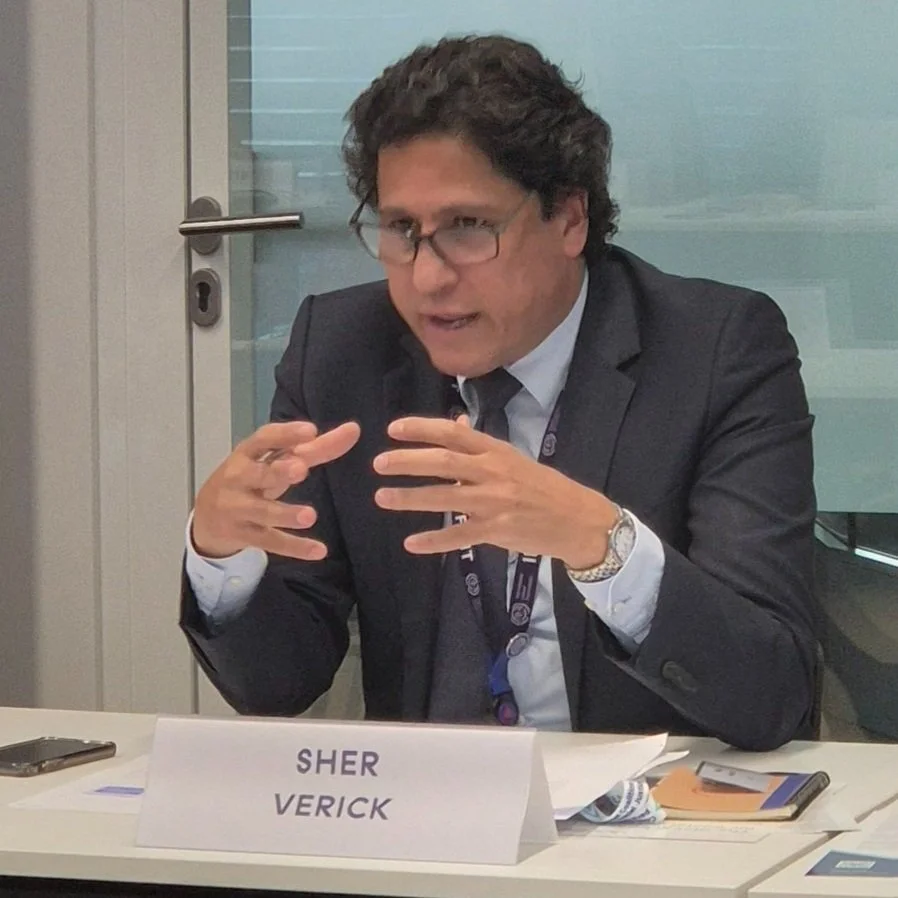Champions for Social Justice: The Unique Power of Academia
Academic Partners of the Global Coalition for Social Justice: Advancing Knowledge, Connection and Co-Creation
By Marie-Laure Salles, Director, Geneva Graduate Institute
On 11 June 2025, the Geneva Graduate Institute welcomed academic leaders from around the world for the inaugural Academic Partners Meeting of the Global Coalition for Social Justice. Held on the eve of the Coalition’s Annual Forum, and moderated by the Graduate Institute’s TASC Platform, the event builds on a year and half of shared engagement and harnesses the distinct power of academia, as:
“Our role is not only to teach, but to create the space for the next generation to construct meaning and engage meaningfully in return.”
As the academic representative of the Coalition’s Coordinating Group, convening the inaugural Academic Partners Meeting reinforces our effort to strengthen academic collaboration at the heart of the Coalition. After all:
“The Institute was built for this. Historically rooted, globally oriented, and future-facing, our mission has always linked social reform to sustainable peace”.
Framed by the Coalition’s call to mobilize the unique power of academia, the gathering surfaced the network's ambition to accompany, not bypass, the evolution of multilateralism.
“We are not building another siloed agenda,” affirmed my dear colleague and longstanding partner in this shared endeavour, Sana de Courcelles, Director of the Secretariat of the Global Coalition for Social Justice.
Academic partners and institutions are more than knowledge producers. They are levers of social cohesion and legitimacy. In an era of strained trust, uncertainty, and transition, multilateralism must evolve, with academic institutions having a critical role in guiding that change.
We were honoured to receive Professor Evance Kalula, Chairperson of the ILO’s Committee on Freedom of Association and Emeritus Professor of Law at the University of Cape Town. Tracing the deep roots of social justice from the founding of the UN to today’s converging global crises:
“Social justice is not a collection of platitudes, it is grounded in research.”
Throughout the day, academic partners shared how their institutions are already contributing to the Coalition’s 14 key interventions. From AI for social impact to global inequality, from cotton value chains to wellbeing economies, they demonstrated that academia is already deeply engaged in these domains and is offering concrete pathways for collaboration. The day’s keynotes brought this agenda to life, demonstrating the unique power of academia to deepen understanding and drive collective action:
Sher Verick, Senior Advisor to the ILO Deputy Director-General, unpacked the tensions between fast-moving technology and slower-moving governance when reflecting on AI for Social Impact.
Dan Rees, Director of the ILO’s Priority Action Programme on Supply Chains, invited academics to reimagine global supply chains as platforms for regional development, not just trade
Dr. Miguel Niño-Zarazúa, SOAS University of London, showcased the Centre of Excellence on Inequalities and called for deeper access to microdata and systems thinking in tackling entrenched disparities
Professor Merita Mesiäislehto and Professor Heikki Hiilamo from the Finnish Institute for Health and Welfare introduced the concept of a Wellbeing Economy, challenging participants to move beyond GDP toward measures that prioritise health, equity, and sustainability.
Professor Adelle Blackett, Senior Advisor, Director-General’s Cabinet, ILO, reminded us that social justice must be real, not abstract and rooted in how people live, work, and thrive.
Caroline Fredrickson, Director of the ILO’s Research Department, underscored the value of deeper partnerships between global institutions and the academic community.
As this network takes shape, it reflects our shared responsibility, and offers an opportunity to ensure that academic knowledge is not only generated, but meaningfully embedded in the design of institutional processes, policy frameworks, and practical initiatives across sectors and levels of governance.
We look forward to welcoming academic institutions interested in being part of this important network.
Graphic Recording: Lisa Petraitis






